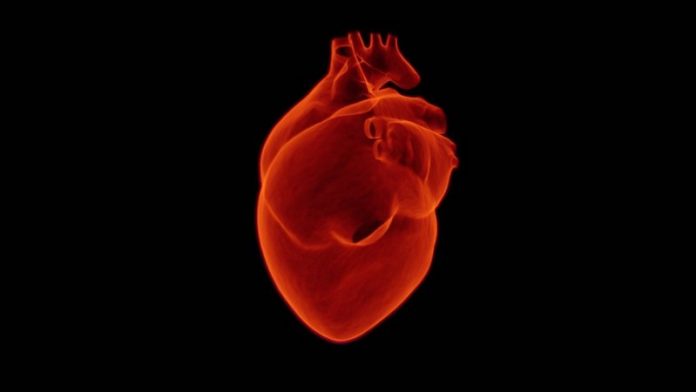
In a new study from Mount Sinai, researchers found having excess pericardial fat — fat around the heart — increases the risk of developing heart failure, especially in women.
They found women with high amounts of heart fat are twice as likely to develop heart failure, while men are 50% more likely.
The findings could lead to early intervention and heart disease prevention.
For nearly two decades doctors have known that obesity, based on simple measurement of height and weight, can double one’s risk of heart failure.
But in this study, researchers have gone a step further by using imaging technology to show that excess heart fat, perhaps due to its location close to the heart muscle, further augments the risk of heart failure.
In the study, the team examined the association between heart fat and the risk of heart failure by using chest computed tomography (CT) scans.
They used CT scans from nearly 7,000 women and men between 45 and 84 years of age across the United States to measure heart fat. None of the participants had evidence of heart disease when the study began.
Researchers followed these participants for more than 17 years and noted that almost 400 of them developed heart failure.
Their analysis found that excess heart fat was associated with a higher risk of heart failure in both women and men, even after adjusting for established risk factors for heart failure.
High heart fat volume increased the risk of developing heart failure by approximately 100% or double, in women and about 50% in men.
The researchers also reported that heart fat was weakly or moderately correlated with indicators of being overweight or obese such as body mass index, waist girth, hip circumference, and waist-to-hip ratio.
It remained a risk factor for heart failure above and beyond the risk of being overweight or obese. In fact, pericardial fat was associated with new heart failure cases regardless of whether the participants were lean, overweight, or obese.
Also, heart fat predicted the risk of heart failure even after taking excess belly fat into consideration.
The research provides strong evidence that excess heart fat strongly raises the risk of heart failure.
If you care about heart failure, please read studies about these high blood pressure drugs linked to higher risk of heart failure and findings of these common foods could make heart failure more dangerous.
For more information about heart failure and your health, please see recent studies about this heart failure drug may treat COVID-19 long-hauler symptom and results showing that heart disease can be found in the eyes.
The study is published in the Journal of the American College of Cardiology. One author of the study is Satish Kenchaiah, MD.
Copyright © 2021 Knowridge Science Report. All rights reserved.



